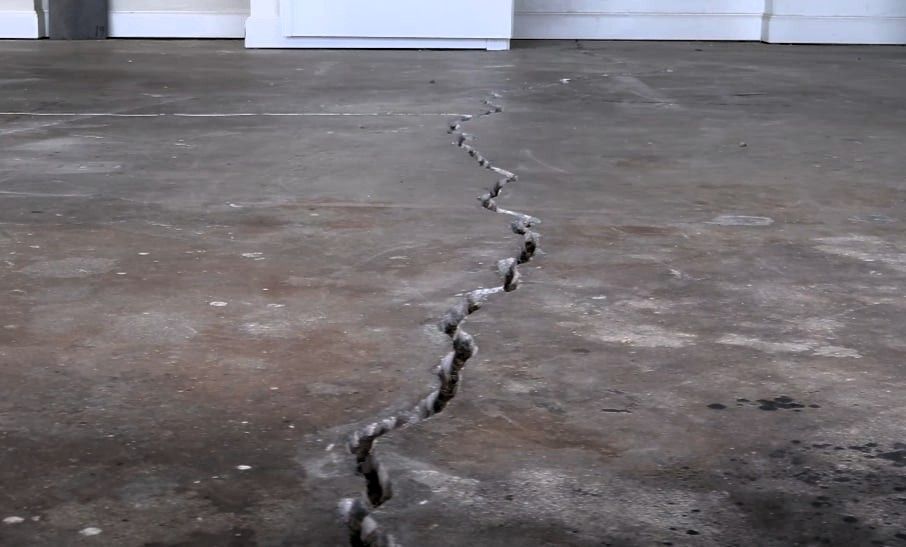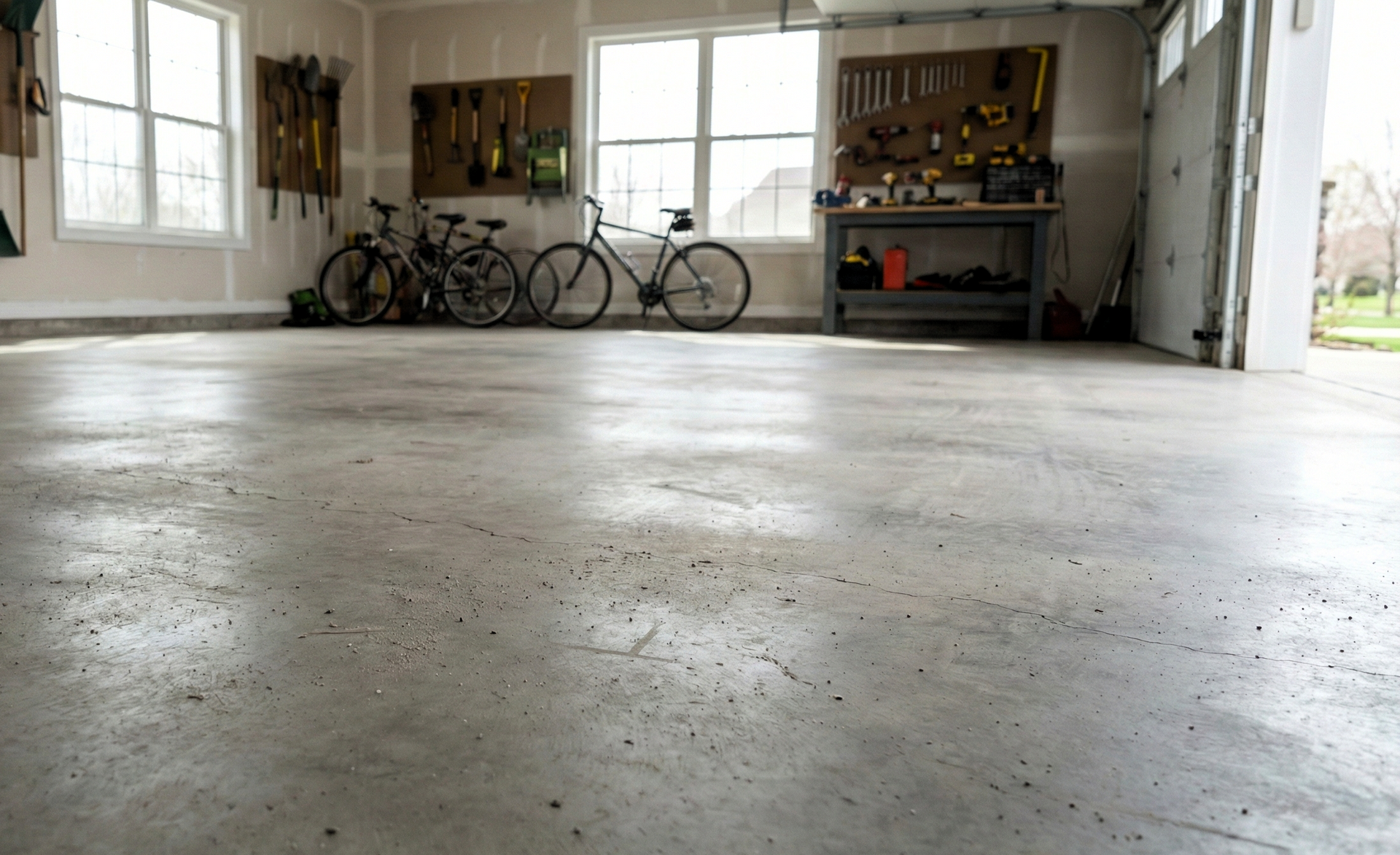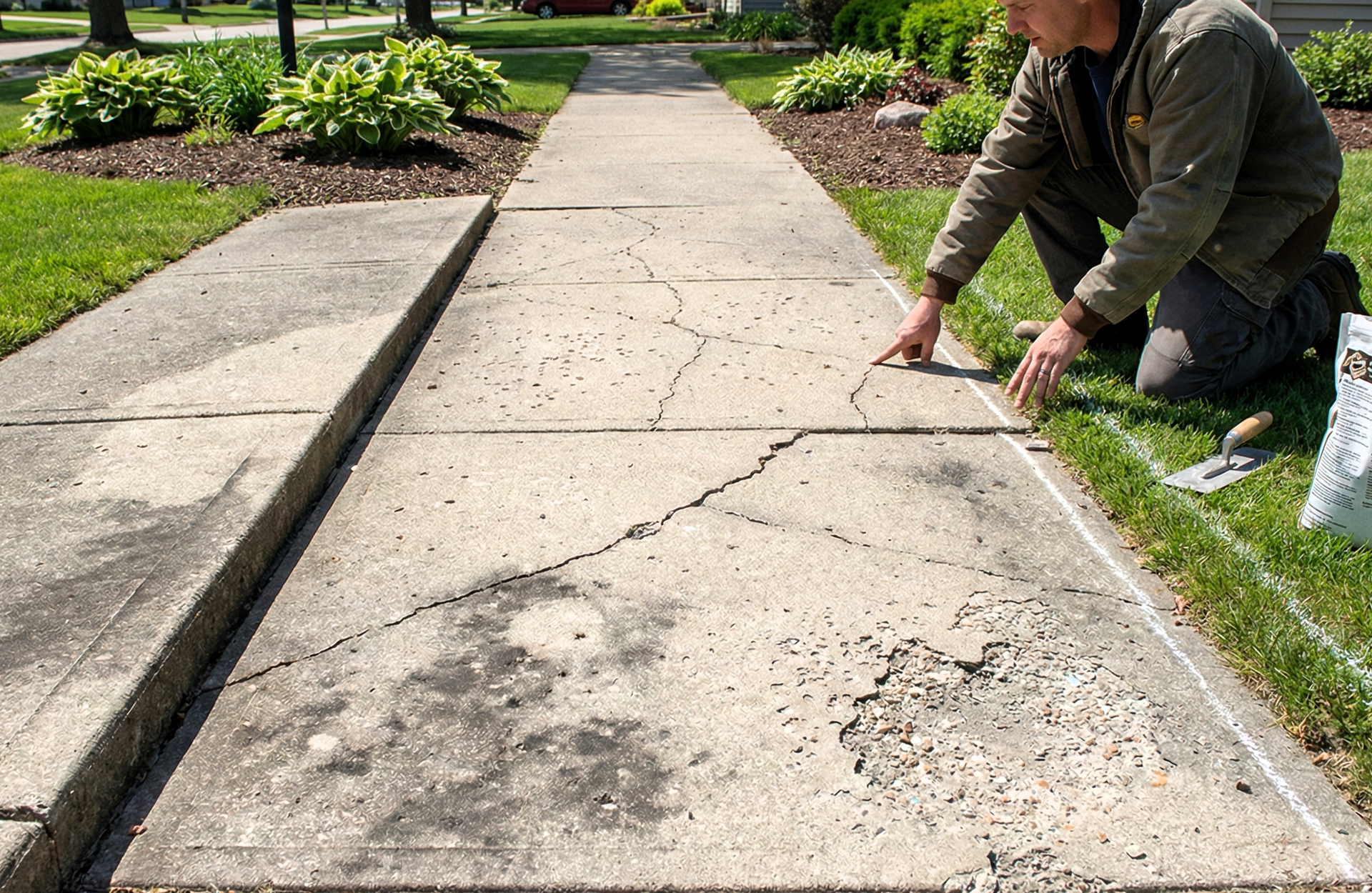When to Worry About Cracks in Your Garage Floor
What cracks in your garage floor really mean—and when to take action

It’s a common scenario: you head into your garage, glance down, and notice a crack stretching across the concrete floor. Right away, you can’t help but ask yourself—could this just be the usual signs of use, or is it a red flag?
The truth is, garage floor cracks are almost inevitable over time. Some are harmless, but others can be early warning signs of bigger problems with your slab or even your home’s foundation. If you live in Grand Rapids, where clay-heavy soils and harsh winters put extra pressure on concrete, it’s especially important to know the difference.
How do you know when a garage floor crack is something to worry about? Let’s break it down.
Cracks That Usually Aren’t a Big Deal
Not all cracks spell disaster. In fact, most garage floors develop tiny hairline cracks as the concrete dries and cures. In most cases, the cracks are narrower than one-eighth of an inch. They don’t usually impact the strength of your floor, and a quick seal with epoxy can prevent moisture from getting in.
If the crack is small, stable, and hasn’t changed in size over time, there’s usually no need to lose sleep over it. Just keep an eye on it during your seasonal home check-ups.
Cracks That Deserve Your Attention
On the other hand, some cracks are red flags. Here’s when you should start to worry:
- Cracks wider than 1/8 inch: Anything you can slip a credit card into could signal underlying stress.
- Uneven cracks: If one side of the floor is higher than the other, your slab may be settling unevenly, which is a more serious issue.
- Spreading or widening cracks: If you notice a crack growing over time, it means the forces causing it are still active.
- Water intrusion: Moisture seeping up through cracks, or pooling around them, often points to drainage or soil problems.
- Cracks reaching into walls or across the whole garage: This may be a sign of foundation trouble, not just a surface issue.
These conditions indicate more than cosmetic wear—they suggest that the slab is under stress and could continue to deteriorate.
Why Ignoring Serious Cracks Can Cost You
It’s tempting to ignore cracks, especially if they don’t seem to affect your day-to-day routine. Without intervention, the outcome may be:
- Threats to safety due to uneven or deteriorated surfaces.
- Moisture damage, which can weaken the slab or cause mold growth.
- Worsening structural issues if the soil beneath your garage continues to shift.
- Decreased property value, since visible cracks are a red flag for potential buyers.
Addressing cracks early usually means a simpler, less costly repair. Waiting too long often results in bigger problems that are harder—and more expensive—to fix.
DIY vs. Professional Help
For small, stable cracks, a homeowner can usually apply a concrete sealant or epoxy to protect the floor from water damage. This is a straightforward fix that helps extend the life of your slab.
But if the crack is wide, uneven, or spreading, or if you see signs of moisture and settling, it’s best to call a professional. A contractor can determine the root cause of the issue and recommend lasting solutions, whether that’s slab leveling, soil stabilization, or reinforcement.
Preventing Future Cracks
While you can’t stop every crack from forming, you can reduce the risk of serious damage:
- Ensure your property is properly graded so water flows away from the garage foundation.
- Seal your concrete floor regularly to protect it from moisture.
- If you’re
pouring new concrete, ensure proper soil preparation, reinforcement, and expansion joints are in place.
These steps won’t make your garage floor crack-proof, but they’ll go a long way toward keeping those cracks small and manageable.
Know the Difference Between Normal and Problematic Cracks
At the end of the day, not every crack in your garage floor is a cause for alarm. Those tiny, hairline cracks that don’t change over time are usually just part of concrete being concrete. But when you start noticing wider gaps, uneven sections, or cracks that seem to grow—and especially if water is sneaking in—it’s time to pay closer attention.
If you’re ever unsure, don’t wait and wonder. Grand Rapids Concrete Pros can take a closer look, explain what’s happening beneath the surface, and recommend the right fix to keep your garage (and your home) safe.
When it comes to your foundation, it’s always better to be cautious. Addressing issues upfront keeps you at ease and prevents bigger troubles in the future.





